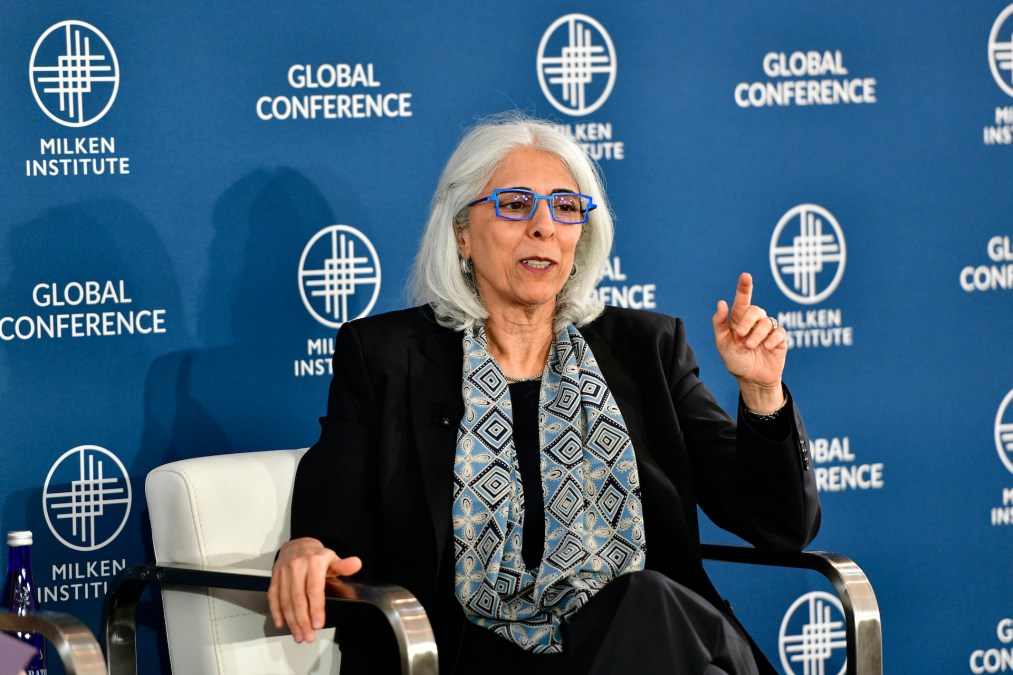Congress presses White House on timeline for research security requirement

The White House is still working to build out its heavily anticipated Research Security Program Standard Requirement (RSP), but did not give Congress a timeframe for when research institutions can expect the policy.
During a House Science, Space and Technology Committee hearing on Thursday, Republican and Democratic lawmakers asked for an update on where the White House Office of Science and Technology Policy stands in releasing final guidance for securing institutions and organizations — primarily in higher education — that receive federal funding for research and development within science and technology.
OSTP Director Arati Prabhakar said that RSP is a “personal priority” for her and that the office is looking to “get this sorted and clear for everyone.” She added that OSTP is working through “very significant comments” that organizations have shared in response to the draft guidance and is “re-vectoring accordingly.”
The feedback on the draft guidance from “inside and outside of government” throughout the research space “gave us considerable pause,” Prabhakar said during the hearing. “What I want to be sure of is that we don’t turn this research security program process into a checklist that an administrator signs off on. … [Researchers should] have an awareness of what’s going on and until we do that, that research security program isn’t really going to work. So that has turned out to be more complex and taking us much longer than I would like.”
The RSP’s creation is in response to a 2021 presidential memorandum on national security strategy in government-supported research and development. The memorandum, known as NSPM-33, directed OSTP to coordinate activities to protect federally funded research from “foreign government interference and outreach to the United States scientific and academic communities to enhance awareness of risks to research security and federal government actions to address these risks.”
Committee Chairman Frank Lucas, R-Okla., said during the hearing that RSP “is an issue that is critically important to the committee and for so many purposes overall,” urging Prabhakar to reach out to Congress if OSTP needs “any additional authorities or directives … to mandate this. We want to help facilitate this process as quickly and as effectively as possible.”
In February 2023, OSTP released draft guidance on requirements for research security programs at universities across the country. In March, the office issued a request for information for research organizations impacted by the program requirement and other research organizations, seeking comment on equity, clarity, feasibility, burden and compliance.
Since then, multiple organizations have published comments to OSTP, but the office has not released official guidance on foreign talent recruitment programs. Prabhakar acknowledged during the hearing that the comments included the administrative burden of reporting and training, which “falls even heavier on smaller research institutions.”
The Massachusetts Institute of Technology submitted comments for OSTP’s request for comment, expressing various concerns about potential burdens and the need for clarification and consistency with terminology throughout the document.
“Having a uniform certification standard should not mean that all research projects are treated identically, but rather that all projects that present a similar risk are treated similarly,” MIT’s response states. “The proposed standards do not seem to take risk into account, resulting in an undue burden on researchers and on activities that pose little in the way of risk to research security.”
Without the finalized guidance, officials from the National Science Foundation, the Department of Energy and the National Institutes of Health shared that they are attempting to fill in the gaps of guidance and implement security for enterprise research organizations until RSP is officially issued.
“It’s a tough one, but the Department of Energy has had to step out and say, ‘We’re doing this right now,’ because we’ve got grants coming in,” Geri Richmond, Under Secretary for Science and Innovation for DOE, said during the hearing. “We’ve got to do this. We would just like to see more consistency.”
OSTP did not respond to a request for comment by the time of publication.

